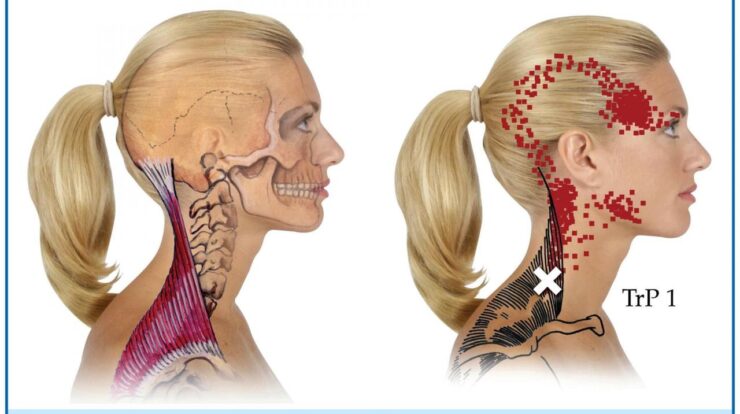
How to cure gum disease without a dentist – Struggling with gum disease? Don’t despair! In this guide, we’ll uncover effective ways to cure gum disease without a dentist. Join us as we explore natural remedies, lifestyle tweaks, and over-the-counter treatments that can help you restore your oral health.
From soothing salt water rinses to quitting smoking, we’ll cover a range of options that can alleviate gum inflammation, reduce bleeding, and promote gum tissue regeneration.
Natural Remedies

Gum disease is a common problem that can lead to serious health issues if left untreated. While traditional treatments typically involve dental visits and antibiotics, there are also a number of natural remedies that can help to cure gum disease without a dentist.
These natural remedies work by reducing inflammation, killing bacteria, and promoting healing. They are generally safe and effective, but it is important to talk to your doctor before using them, especially if you have any underlying health conditions.
Gum disease can be a pain in the mouth, but it doesn’t have to be a pain in your wallet. There are plenty of ways to cure gum disease without a dentist, and you can find all the info you need right here: how to cure gum disease without a dentist . So don’t let gum disease get you down – fight back today!
Salt Water Rinses
Salt water rinses are one of the simplest and most effective natural remedies for gum disease. Salt water helps to reduce inflammation and kill bacteria. It is also a natural antiseptic, which can help to prevent infection.
To make a salt water rinse, simply dissolve 1/2 teaspoon of salt in 8 ounces of warm water. Rinse your mouth with the salt water for 30 seconds, then spit it out. Repeat 2-3 times per day.
Tea Tree Oil
Tea tree oil is a powerful essential oil that has antibacterial and anti-inflammatory properties. It can be used to treat a variety of skin conditions, including gum disease.
To use tea tree oil for gum disease, add a few drops of the oil to a cup of water. Rinse your mouth with the tea tree oil solution for 30 seconds, then spit it out. Repeat 2-3 times per day.
Baking Soda
Baking soda is a natural alkaline that can help to neutralize the acids in your mouth that cause gum disease. It is also a mild abrasive, which can help to remove plaque and bacteria from your teeth.
To use baking soda for gum disease, make a paste by mixing 1/2 teaspoon of baking soda with a little water. Brush your teeth with the baking soda paste for 2 minutes, then spit it out. Rinse your mouth with water.
Gum disease is a common problem that can lead to serious health issues if left untreated. Fortunately, there are a number of things you can do to cure gum disease without having to visit the dentist. One of the most effective ways to cure gum disease is to practice good oral hygiene.
This includes brushing your teeth twice a day, flossing once a day, and using a mouthwash. You should also avoid sugary foods and drinks, as these can contribute to the development of gum disease. If you have gum disease, it is important to see a dentist to rule out any other underlying causes.
However, if your gum disease is mild, you may be able to cure it at home with the following tips.
Lifestyle Changes
Gum disease can be prevented and treated through lifestyle changes. These changes focus on improving overall oral health and reducing risk factors associated with gum disease.
Healthy habits that contribute to gum disease prevention and treatment include:
Quitting Smoking
- Smoking damages the immune system and reduces blood flow to the gums, making them more susceptible to infection.
- Quitting smoking is one of the most effective ways to improve gum health and prevent gum disease.
Improving Oral Hygiene
- Brushing twice a day with a soft-bristled toothbrush and fluoride toothpaste removes plaque and bacteria from the teeth and gums.
- Flossing daily removes plaque and bacteria from between the teeth, where a toothbrush can’t reach.
- Using an antiseptic mouthwash can help kill bacteria and reduce inflammation in the gums.
Reducing Sugar Intake
- Sugar feeds the bacteria in the mouth, which produce acids that attack the teeth and gums.
- Reducing sugar intake helps to reduce the amount of bacteria in the mouth and the risk of developing gum disease.
Over-the-Counter Treatments
Over-the-counter treatments for gum disease can help alleviate symptoms such as pain, bleeding, and inflammation. These products are typically available in the form of mouthwashes, gels, and toothpastes.
Mouthwashes that contain antibacterial ingredients such as chlorhexidine or cetylpyridinium chloride can help reduce plaque and bacteria buildup. Gels and toothpastes that contain fluoride can help strengthen teeth and prevent further decay. Some over-the-counter treatments also contain ingredients that can help soothe irritated gums and reduce inflammation.
Looking to cure gum disease without a dentist? There are some effective home remedies you can try. How to cure gum disease without a dentist offers tips and advice on natural treatments for gum disease, including using salt water rinses, tea tree oil, and clove oil.
Mouthwashes, How to cure gum disease without a dentist
- Chlorhexidineis a powerful antibacterial agent that can effectively reduce plaque and bacteria buildup. However, it can also cause side effects such as tooth staining and taste disturbances.
- Cetylpyridinium chlorideis another antibacterial agent that is less effective than chlorhexidine but has fewer side effects.
- Listerineis a popular over-the-counter mouthwash that contains a combination of essential oils that have antibacterial and anti-inflammatory properties.
Gels and Toothpastes
- Fluorideis an essential mineral that helps strengthen teeth and prevent decay. It is found in most over-the-counter toothpastes and gels.
- Triclosanis an antibacterial agent that can help reduce plaque and bacteria buildup. It is found in some over-the-counter toothpastes and gels.
- Sodium lauryl sulfateis a detergent that helps remove plaque and bacteria from teeth. It is found in most over-the-counter toothpastes.
It is important to note that over-the-counter treatments for gum disease can only help alleviate symptoms. They cannot cure gum disease. If you have gum disease, it is important to see a dentist for proper diagnosis and treatment.
Home Remedies

Home remedies can be effective in reducing gum inflammation and pain. However, it’s crucial to note that they are not a substitute for professional dental care.
The following table compares various home remedies for gum disease, including ingredients, preparation methods, and potential benefits:
| Remedy | Ingredients | Preparation | Potential Benefits |
|---|---|---|---|
| Saltwater Rinse | 1/2 teaspoon of salt dissolved in 8 ounces of warm water | Rinse for 30 seconds, twice daily | Reduces inflammation, kills bacteria |
| Hydrogen Peroxide Rinse | 3% hydrogen peroxide diluted with equal parts water | Rinse for 30 seconds, twice daily | Antibacterial, reduces inflammation |
| Tea Tree Oil Rinse | 5 drops of tea tree oil in 8 ounces of warm water | Rinse for 30 seconds, twice daily | Antibacterial, antifungal |
| Baking Soda Paste | 1 tablespoon of baking soda mixed with a little water to form a paste | Apply to gums, leave on for 5 minutes, then rinse | Neutralizes acids, reduces inflammation |
| Clove Oil | Apply a drop of clove oil to the affected area | Antibacterial, analgesic |
Scientifically Proven Remedies
Some home remedies have been scientifically proven to be effective in treating gum disease:
- Saltwater rinse: Saltwater rinses have been shown to reduce gum inflammation and kill bacteria.
- Chlorhexidine mouthwash: Chlorhexidine is an antiseptic mouthwash that has been shown to be effective in reducing gum disease.
- Tea tree oil: Tea tree oil is an essential oil that has been shown to have antibacterial and antifungal properties.
Alternative Therapies

Alternative therapies can provide complementary support alongside conventional treatment for gum disease. While they should not replace professional dental care, these therapies may offer additional benefits and improve overall oral health.
It’s important to consult with a healthcare professional before incorporating any alternative therapies into your treatment plan. Some therapies may interact with medications or have potential side effects.
Acupuncture
Acupuncture involves inserting thin needles into specific points on the body to stimulate the body’s natural healing response. Some studies suggest that acupuncture may reduce inflammation and pain associated with gum disease.
Gum disease can be a real pain in the mouth, but did you know that you can actually cure it without ever having to see a dentist? It’s true! There are a number of natural remedies that can help to reduce inflammation and pain, and even kill the bacteria that cause gum disease.
Check out how to cure gum disease without a dentist for more information on how to get rid of gum disease for good.
Herbal Supplements
Certain herbal supplements have antibacterial and anti-inflammatory properties that may benefit gum health. These include:
- Green tea extract
- Turmeric
- Aloe vera
Laser Therapy
Laser therapy uses low-level lasers to stimulate tissue regeneration and reduce inflammation. It may be used as an adjunct to scaling and root planing to improve treatment outcomes.
Final Conclusion: How To Cure Gum Disease Without A Dentist
By embracing these tips and seeking professional advice when necessary, you can take control of your gum health and achieve a healthier, more radiant smile. Remember, preventing gum disease is always better than treating it, so don’t hesitate to implement these strategies today.
Question & Answer Hub
Can I cure gum disease permanently?
While gum disease can be managed and its symptoms reduced, it’s typically not curable. However, with proper care and maintenance, you can prevent further progression and maintain healthy gums.
How long does it take to cure gum disease?
The time frame for improving gum health varies depending on the severity of the disease and your individual response to treatment. With consistent care, you may notice improvements within a few weeks to several months.
Is gum disease reversible?
Early stages of gum disease, known as gingivitis, can be reversed with proper oral hygiene and professional cleanings. However, advanced gum disease, called periodontitis, is not reversible and requires ongoing management.





